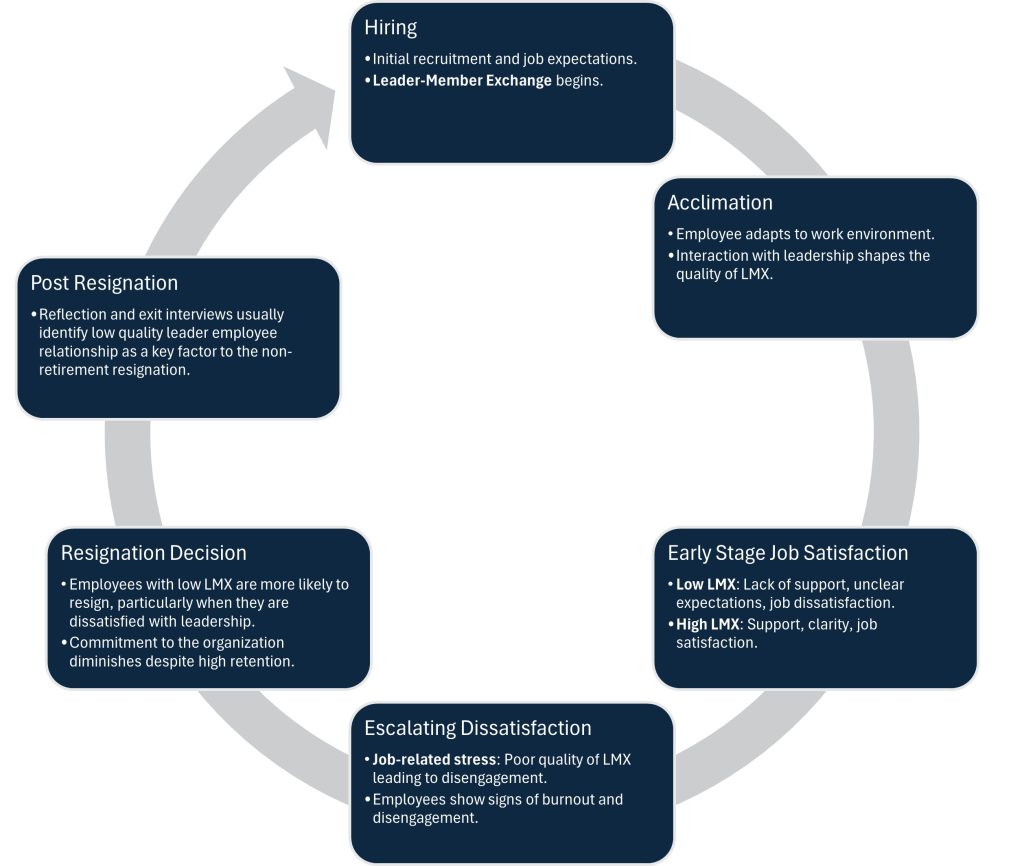
Employee Lifecycle where Low Leader Member Exchange (LMX) Relationships are Present
According to Bowman (2025), workplaces characterized by low leader-member exchange (LMX) relationships often see employees resigning for reasons unrelated to retirement. LeaderMember Exchange (LMX) theory, introduced by Dansereau, Graen, and Haga (1975), provides that leadership is inherently relational, with leaders and subordinates forming unique, dyadic relationships that significantly influence organizational outcomes. High-quality LMX fosters trust, respect, and commitment, resulting in higher job satisfaction, increased organizational commitment, and reduced turnover. In contrast, low-quality LMX contributes to stress, dissatisfaction, and higher attrition rates. To mitigate the negative effects of low-quality LMX, Bowman (2025) argues that policymakers must prioritize the development of programs, policies, and practices that enhance leadership support, encourage positive employee relationships, and promote a culture of mutual respect and fairness.

References
Bowman, S. M. (2025). A phenomenological study of the Internal Revenue Service’s employee commitment and retention problem: Uncovering leadership strategies to reverse this trend (Doctoral dissertation). Liberty University. Dansereau, F., Graen, G., & Haga, W. (1975). A vertical dyad linkage approach to leadership within formal organizations. Organizational Behavior and Human Performance, 13(1), 46-78.